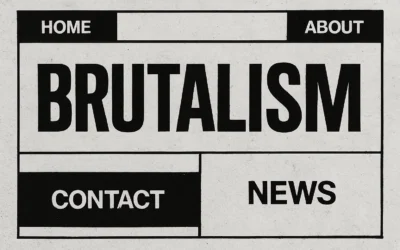
Stop me if you’ve heard this before:
“I got into the agency business because I’m passionate about the craft. I don’t really know much about the business side of things.”
Or how about this one:
“I landed the biggest customer ever, and now my business is going under.”
Or this:
“We have tons of work coming in. Everyone is crazy busy, but we’re losing money.”
I have said each of these things out loud, and my business managed to survive. To survive in business, you need to use common sense and understand one thing: cash flow management. In an effort to refresh my own memory, and to help you out, I’d like to share six business killers that I have somehow managed to survive over the past seven years.
“To survive in business, you need to use common sense and understand one thing: cash flow management.”
I won’t point out specifics, but I have struggled with each of these business killers. I have seen each of them take down business owners close to me. It sucks, and it hurts. But all of the owners have recovered and are now back on their feet — wiser for the experience.
Hopefully, this straight talk can save you some heartache and keep you from making the fatal mistake of not actively managing your cash flow.
1. Paying Yourself Too Much
Before I hired the first employee at my UX agency, I was a freelance web designer. As a solo practitioner without any practical business experience, I thought “profit” was how much money I took out of the business bank account and put into my personal bank account. But that isn’t quite right.
For a solo practitioner, profit is what your business makes after you pay your company’s bills and pay yourself a fair market rate for your line of work.
To grow from a freelancer into a small agency, and then from a small agency into a mid-sized agency, your business needs to make more than you need to live on before you can safely hire additional people to help you out.
“Profit is what your business makes after you pay your company’s bills and pay yourself a fair market rate.”
Though that seems obvious, many of us take extra cash out of the business prematurely. Cash finally starts flowing nicely, so you decide to pay down some debt or treat yourself to a new car, nicer clothes, or a home renovation.
Don’t get me wrong, there’s nothing wrong with that! Just be very clear on how you define profit and make sure your business has some money that you don’t touch personally.
Profit should go to keeping your business finances healthy, not just your personal finances.
The Fix: On the 1st and 15th of each month, pay yourself as little as you can. What does someone with your experience and skills make working for someone else? That’s what you should pay yourself. Then, at the end of each quarter, after you pay your tax installment and keep profit in the business, consider drawing some extra cash out of the business and putting it in savings or buying something nice.
2. Not Re-Investing Profits
Question: Who wouldn’t spend $10 to make $20?
Answer: The person without $10.
When you get the $10, double down on your business. Cash in the bank doesn’t grow as much as money that’s being put to work. When you have extra cash on hand, you can operate your business at a loss (for a bit) in order to invest in new opportunities and still maintain a healthy business.
“Cash in the bank doesn’t grow as much as money that’s being put to work.”
Planned growth is expensive. You must have cash on hand so that you can spend money now to make more money in the long run.
The Fix: I’ve chosen to buy cash flow stable SaaS businesses with the profits from Simple Focus, which helps to regulate the ups and downs of agency project cycles. Find ways to reinvest your profits in growing your business, reducing risk, or improving your quality of life.
Here are four examples:
- Hire a sales director, executive assistant, or production staff.
- Lease or purchase new equipment and add to your capabilities.
- Buy out competitors or buy a book of business from someone making a career transition.
- Add new products and services to your lineup.
3. Unexpected Growth
Growth is expensive, but unexpected growth can cripple your business before you know what hit you. Very healthy cash flow is the foundation that can get you through. It enables you to rapidly put a load-bearing structure in place.
If a very large opportunity shows up at your doorstep, evaluate it with a critical eye. If you scale up your operation to support the opportunity and then that opportunity goes away in a year, would you have to let people go?
“Growth is expensive, but unexpected growth can cripple your business before you know what hit you.”
The Fix: Consider a route less risky than immediate, full-time hires, such as independent contractors or partnerships with companies that can supplement your capabilities. You could also refer the work to someone else for a 15% referral fee.
If you do take on the project, start looking now for new customers to help you diversify your risk. Your largest customer should account for no more than 30% of your business. Use the opportunity to grow your business to a new level, but think ahead about what happens to your cash flow in a year or more.
4. Slow-to-Pay Customers
Big companies have big budgets, notoriously long payment terms, and long, complex contracts.
To avoid these problems, smaller agencies will often work as a subcontractor for a preferred vendor doing work for a large company. If that vendor’s contract with you has a we-pay-you-when-we-get-paid clause, watch out.
If your customer — that is, the big company’s vendor — doesn’t have a healthy business, then they may choose to catch up on other bills before paying you.
You wait even longer.
Large companies pay slowly for logical reasons. They have a significant amount of cash on hand at any given time, but if it’s sitting in a bank account, it’s not growing. So instead of holding this cash, they invest it to grow it. The longer they hold the cash, the more they make.
“Don’t sign anything that doesn’t guarantee that you get paid for your work.”
Inflation also comes into play: a dollar today is worth more than a dollar in 60 days. If they pay you $10,000 in 60 days, as opposed to today, they’re paying less for your service.
Ouch.
The Fix: First off, charge more when you work with really big companies to make up for the payment terms, complexity, and additional layers of management. And secondly, pay an attorney to walk you through your agreements. Don’t sign anything that doesn’t guarantee that you get paid for your work.
5. Cash Flow Lulls
You can make gobs of profit over the course of the year, only to be brought to your knees by a summer cash crunch.
The thing about cash flow management for agencies is that there are really intense project cycles, and then there are slow periods. You need cash on hand for the slow periods because your payroll and rent don’t stop when business slows.
“You need cash on hand for the slow periods because your payroll and rent don’t stop when business slows.”
The Fix: Work out payment plans and negotiate vendor agreements so that you reconcile your accounts payable and accounts receivable. During the wet season of big projects, you can lay up cash reserves. When you have three months of operating expenses in the bank, a summer dry season won’t starve you.
6. Employees Quitting
Sometimes, when an employee quits, you feel nothing but relief. Maybe he wasn’t a good fit, and he sensed the bad fit before you could act on it. Maybe you’re happy to keep the extra cash from his salary.
But more often than not, an employee’s departure hurts both emotionally and financially because you invested a lot of time and money in that person’s growth.
“An employee’s departure hurts both emotionally and financially because you invested a lot of time and money in that person’s growth.”
In addition, he was producing revenue (and profits!). Now that he’s gone, your production has slowed to a crawl. Everyone else is too busy to take on additional workload, and so overall cash flow has slowed.
The Fix: Develop a deep bench of on-call talent. Always be interviewing. Always be hiring, even when you’re not.
Bottom Line
In 2013, I bought my first SaaS business, a cash flow software company called Pulse. If I’m being completely honest, I didn’t know how valuable Pulse is for small businesses, especially agencies. But today, after watching countless businesses fail because they didn’t take the time to manage their cash flow, I get it.
Cash builds confidence. We forget the fundamentals until our businesses become top-heavy and fall over. Take some time this week to do an honest audit of your business.
Are you still practicing the fundamentals?
Note: this article was originally posted on the Pulse blog.





An unexpected growth is one of the most overlooked factors that could lead to a business failure. It can falsely convince an agency how its customers will always be there. But as it grow, the customer focus that won that business in the first place can slip, priming customers to fall into the open arms of a competitor.
Fast and unexpected growth is so dangerous that it can even strain employees physically! Typically they’ll be working long hours while the company struggles to hire and train enough staff…
So true Duke. Growth will definitely make you forget what got you there.
+1. Growth should be natural and gradual. Than it’s gonna be useful.
Dud, I will agree with you, thanks for this artcle